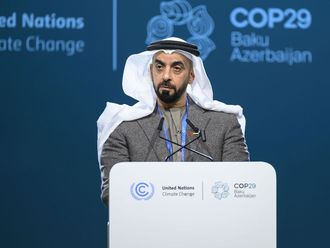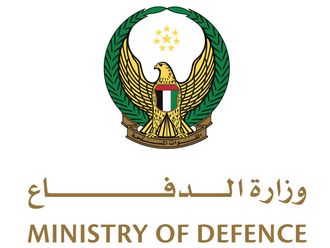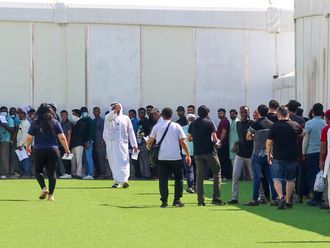Abu Dhabi: The International Renewable Energy Agency (Irena) will present a detailed analysis on the UAE, US and China and their options to increase the share of renewable energy in their energy mix at the two-day council meeting of the agency in Abu Dhabi.
“In the course of the past two years, we worked with countries to identify options we have at our disposal. During the SE4ALL [Sustainable Energy For All] forum in New York in June 2014, we launched the REmap report — a roadmap for doubling the share of renewable energy in the global energy mix,” Adnan Z. Ameen, director-general of Irena, said at the opening session of the meeting.
REmap shows that not only can renewable energy meet the world’s rising demand, it can do so more cheaply, while contributing to limiting global warming to under two degrees Celsius. “In cooperation with national experts, we are examining REmap options for individual countries and, in the course of this council meeting, we will present detailed analysis undertaken for China, UAE and the US.”
Creating a framework that simultaneously delivers secure, affordable and sustainable energy to underpin economic and social development is one of the most important challenges facing governments today. “We continue to assist countries in addressing these challenges by supporting them in the development of enabling frameworks through the Renewable Readiness Assessment [RRA process-22 countries across the world]. We are also analysing the RRAs to date to identify lessons learned and common issues that could be of assistance to other countries,” Ameen said.
Irena’s annual publication, REthinking Energy, released in September [and since launched in the UAE, Paris, New York and Tokyo], in its first edition examined the role of renewable energy in the transformation towards a clean energy system. Focused on the power sector, it explored the change under way, outlined what an energy system powered by renewables might look like, and highlighted how policy makers can further support the transformation. REthinking Energy sends a clear message that a renewable energy future is possible, cost-effective and will have dramatic benefits for the whole society. It also emphasises that the transformation requires the collective, long-term commitment of all stakeholders, including governments, citizens, financiers, private sector and international agencies.












